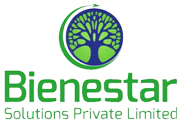Survey
Survey and Data Collection Services
Designing the Survey
- Objective Setting: Clearly defining what you want to achieve with the survey to ensure that the data collected is relevant and useful.
- Questionnaire Development: Crafting questions that are clear, unbiased, and structured to elicit the most informative responses. Including both quantitative and qualitative questions depending on the data needs.
- Sampling Methodology: Deciding on a sampling method that suits the project goals, whether it’s random sampling, stratified sampling, or convenience sampling, to ensure representativeness of the data.
Data Collection Techniques
- Face-to-Face Interviews: Personal interaction often yields higher response rates and allows for more detailed answers, especially useful in community-based projects.
- Telephonic Interviews: Cost-effective and less time-consuming than face-to-face interviews, suitable for broader geographical areas.
- Online Surveys: Utilizing digital tools like Survey CTO, Google Forms, and specialized survey software to reach a wide audience quickly.
- Focus Groups: Gathering qualitative data through guided discussions among a group of people about their perceptions, opinions, beliefs, and attitudes towards a product, service, concept, advertisement, idea, or packaging.
Data Management and Analysis:
- Data Entry and Cleaning: Ensuring data is accurately recorded and cleaned to remove any inconsistencies or errors.
- Statistical Analysis: Using statistical tools to analyze the data, which may include software like SPSS, SAS, or more advanced data analytics platforms.
- Reporting and Visualization: Presenting the data in an understandable format using graphs, charts, and detailed reports to highlight key findings and insights.
Quality Control and Ethics
- Maintaining Confidentiality: Ensuring all data collected is kept confidential and secure, respecting the privacy of all participants.
- Ethical Considerations: Obtaining informed consent from all participants and ensuring the survey complies with all relevant ethical guidelines and laws.
- Pilot Testing: Conducting a pilot test of the survey to identify any issues in the survey design and methodology before full-scale data collection.
Leveraging Technology and Tools
- Mobile Data Collection: Utilizing mobile technology and apps for efficient data collection in the field.
- Real-Time Data Collection Systems: Implementing systems that allow for real-time data capture and reporting, which can be particularly useful in dynamic project environments.
- Data Integration: Ensuring that data from various sources can be integrated and analyzed collectively to provide a comprehensive view.
